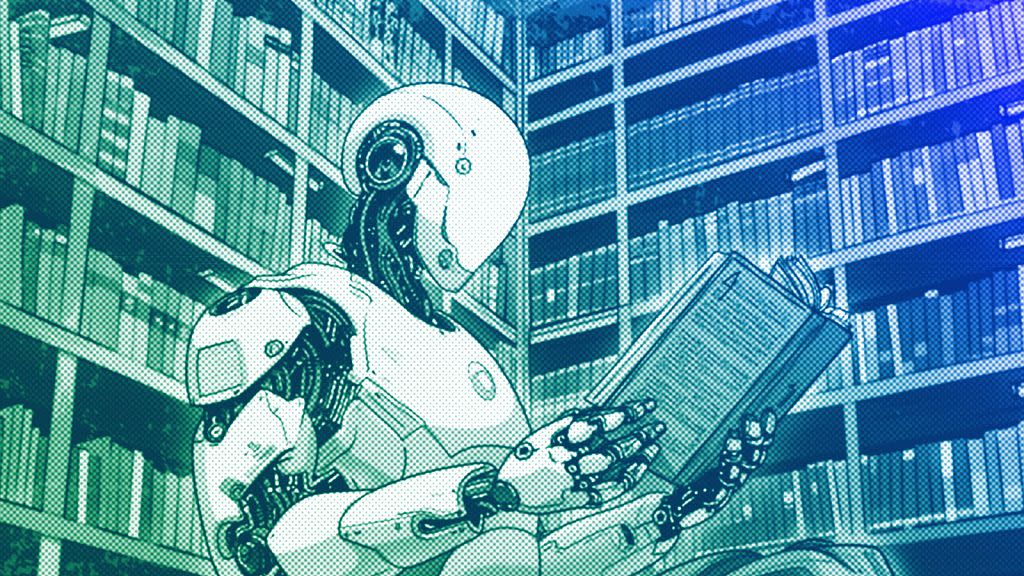AI will not magically solve business challenges. It’s time to re-shape the narrative

Artificial intelligence holds the potential to completely transform the way we live and work, from generating realistic images in seconds to potentially replacing smartphone apps.
New developments and applications are emerging daily, and businesses are increasingly implementing AI-based tools and platforms into their operations with the hope of reaping the benefits.
In fact, the adoption of AI tripled last year, with 37% of organisations implementing AI in some form, according to Gartner.
But AI is not a quick magic fix.
Business leaders cannot just implement AI and then step back and assume it will automatically add value and make a meaningful difference to their operations.
The answer lies in combining human and artificial intelligence. Only then can AI truly deliver on expectations.
When AI goes awry
Let’s explore why AI, without humans, will never deliver on expectations. According to a study by IDC, approximately 70% of AI projects in businesses fail to meet their objectives, often due to a lack of skilled workforce and inadequate understanding of AI technologies.
Employees need to be properly educated on when and how to use AI solutions and then given time to understand them and ask questions to gain the most value from the new systems. This means it can be used at the correct place, at the correct time.
When it comes to AI-powered translation, for example, many businesses — particularly within complex industries such as pharmaceuticals — could greatly benefit from AI to translate large volumes of content and quickly turn around advisory literature on patient guidance.

However, since AI translation is not yet at a stage where 100% accuracy can be guaranteed, this output also requires human review from qualified subject matter specialists.
If utilised incorrectly, this could slow down outputs, leading companies to believe AI isn’t providing real value. That missing understanding of the intersection between humans and AI is causing organisations to believe AI is the root issue rather than how it is used.
What organisations are seeing is that this post-editing by in-the-loop experts remains the critical gap between AI translation output and translation that is trustworthy and fit-for-purpose — particularly for specialist industries like pharmaceutical, financial services, or law.
How can businesses benefit from AI?
In order to see success from AI in business, business leaders need to implement solutions that combine artificial intelligence and human intelligence. This results in a business that is built on genuine intelligence.
The idea of genuine intelligence is that it is a synergistic combination of artificial intelligence and human intelligence.
This means that AI doesn’t replace human beings — instead, it complements specialised human skills to increase the speed and volume of output. This approach means that AI is continually learning and adapting to the context to which it is exposed, which itself is selected by human experts.

If you use a solution that has been adequately implemented and built with genuine intelligence at its core, language specialists would only be involved at the most critical points to assess and teach the AI rather than just review the output.
As a result, translation can still be completed for the business to a high level of accuracy, but we have not removed the all-important human element, which ensures that the standard of translation remains high.
AI tools and platforms that significantly reduce the reliance on human involvement while maintaining high levels of accuracy and efficiency are essential in complex industries.
Artificial intelligence: Google says it is developing new tools to help journalists
Who in Europe is investing the most in artificial intelligence?
This is particularly relevant in AI-powered translation, where advancements such as Evolve — combining human intelligence with AI — have significantly reduced the time required to achieve human-quality translations.
This means businesses can use a platform that can deliver human-like translation almost instantly, reaping the huge benefits of proper AI implementation.
So, what’s the perfect fit?
The right AI solutions are out there for businesses. It’s just about identifying them and implementing them in a way that ladders into a successful technology ecosystem.
Bringing in new AI solutions for the sake of it simply won’t work.
Technology leaders need to assess different solutions based on several factors. These include cost, usability, time to value, speed, and accuracy. It is important to do a full market assessment, and envisioning how this would be embedded into a team is vital to successful AI management.
By combining artificial intelligence with human intelligence, we get genuine intelligence. AI is closer to becoming a silver bullet in addressing complex business challenges.
Solutions developed using genuine intelligence can enhance efficiency, produce accurate content, boost human productivity, and give workers more opportunities to work on tasks that truly need their attention — ensuring that businesses are truly gaining value from AI, and seeing its benefits come to fruition.
Thomas Labarthe is President of Language & Content Technology at RWS.
At Euronews, we believe all views matter. Contact us at view@euronews.com to send pitches or submissions and be part of the conversation.

